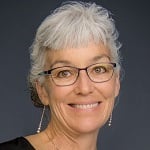Her eyes were tired but happy above her surgical mask. Her breathing was quick, as she sat with her 2-day old son cradled in her arms. Ana looked down as he started to wiggle, rooting for a meal. She’d been discharged from the hospital 24 hours after her vaginal delivery, her COVID-related cough and difficulty breathing improved but not resolved. Ana and her son had a shared respiratory clinic appointment with a family physician—one appointment with one clinician at one site—thereby reducing COVID exposure to other patients and staff, easing the new family’s schedule, and preserving precious PPE (personal protective equipment).
Cambridge Health Alliance, an academic community health safety net system in the metro-north Boston area, serves a population of approximately 140,000 patients, largely immigrant, underserved, and non-English speaking. As a resource-limited system caring for a high-risk patient population, we developed a plan to provide safe, comprehensive, and streamlined care during the initial COVID surge in Massachusetts. We sought to provide both urgent as well as ongoing primary care to patients with known or suspected COVID, in a way that was accessible for patients of all ages and conditions to receive medical care inclusive of, but not limited to, COVID-19.
The answer: a dedicated respiratory clinic, in a separate building, for patients with known or suspected COVID. Moreover, this dedicated respiratory clinic allowed us to continue to provide comprehensive, safe care to COVID-infected pregnant patients and COVID-exposed newborns during these extraordinary times.
With a rapidly diminishing clinician workforce (due to COVID-related illness), there was no clear way to cohort COVID-infected prenatal and postpartum patients to receive in-person care without exposing well patients. There weren’t enough available OBGYN providers to staff the respiratory clinic, and the intensive infectious control processes made it impossible to see both sick and well prenatal patients in the regular maternity clinic. The solution arose through the broadly trained specialists in family medicine, internal medicine, and dually trained medicine-pediatrics (med-peds) providers.
While this system answers an urgent clinical need for routine newborn and postpartum care, it also recognizes the exceptional stress of the pandemic on new families. New mothers with COVID often experience debilitating symptoms, in addition to the demands of new parenthood. And further, newborns are at risk for attachment problems in the future, if separated from their mothers due to COVID-19 physical distancing measures. New families also experience stress due to multiple medical appointments, isolation from loved ones, and economic difficulties. Addressing this complicated tableau became a central goal of our respiratory clinic.
During Ana and her son’s shared respiratory clinic appointment for postpartum and newborn care, the family physician answered questions about breastfeeding with COVID, reinforcing the World Health Organization (WHO) recommendations. The clinician reviewed COVID-related symptom management, signs of postpartum depression, and how to take the newborn’s temperature. She discussed postpartum preeclampsia symptoms, expected weight changes in a newborn, and community programs that deliver free groceries to patients’ homes during COVID-related isolation.
By utilizing family medicine physicians as anchor providers, we’ve addressed the need for routine prenatal care for COVID-infected patients, COVID-19 specific care, and care of the COVID-exposed newborn.
During the initial COVID surge in Massachusetts, we provided 70 clinical encounters to 52 unique prenatal or recently postpartum patients, as well as 141 telehealth visits for these patients for COVID-19 symptom follow-up. Eight of these patients delivered healthy term newborns during our initial surge. Any new parent who is symptomatic, recently symptomatic, or recently tested positive for COVID, is seen in the respiratory clinic for shared postpartum and newborn visits until both the parent and baby have completed COVID-related isolation and remain symptom free.
Family physicians are critical to the comprehensive, full-spectrum care provided in our respiratory clinic. This model allows us to manage the rapidly evolving needs of COVID-infected outpatients, as well as simultaneously manage other primary care needs, like chronic disease management, acute behavioral health concerns, and prenatal, postpartum, and newborn care.
This clever innovation returns to the old wisdom of a generalist physician—experienced and capable in the care of all people—as the center of a medical system. Unfortunately, our current climate of ultra-specialization lures students, providers, and health systems away from this paradigm. It’s critical that we work our way back towards center, capitalizing on the great value and versatility of the family physician, particularly in settings of clinical complexity, affecting a broad patient spectrum.
**Feature photo by Omar Lopez on Unsplash
Interested in other articles like this? Subscribe to our bi-weekly newsletter
 Kathe Miller, MD, is a Family Medicine Physician at Cambridge Health Alliance Windsor Street Health Center where she provides care to multiple generations of largely immigrant families, speaking fluent Spanish and medical Portuguese with the majority of her patients (and also learning Haitian Kreyol). Dr. Miller is Assistant Professor at Harvard Medical School (HMS), Director of the HMS Home for Family Medicine, Director of the HMS Foundational Continuity Clinic (a required first year course within Practice of Medicine), and HMS Family Medicine Advisor. In 2012, Dr. Miller was named Family Physician of the Year by the Massachusetts Academy of Family Physicians, as well as honored with the Excellence in Primary Care Teaching award by the Harvard Center for Primary Care. She moved to Massachusetts in 2000 after completing a six-month Fulbright project teaching medical education in Argentina.
Kathe Miller, MD, is a Family Medicine Physician at Cambridge Health Alliance Windsor Street Health Center where she provides care to multiple generations of largely immigrant families, speaking fluent Spanish and medical Portuguese with the majority of her patients (and also learning Haitian Kreyol). Dr. Miller is Assistant Professor at Harvard Medical School (HMS), Director of the HMS Home for Family Medicine, Director of the HMS Foundational Continuity Clinic (a required first year course within Practice of Medicine), and HMS Family Medicine Advisor. In 2012, Dr. Miller was named Family Physician of the Year by the Massachusetts Academy of Family Physicians, as well as honored with the Excellence in Primary Care Teaching award by the Harvard Center for Primary Care. She moved to Massachusetts in 2000 after completing a six-month Fulbright project teaching medical education in Argentina.
- Share
-
Permalink


